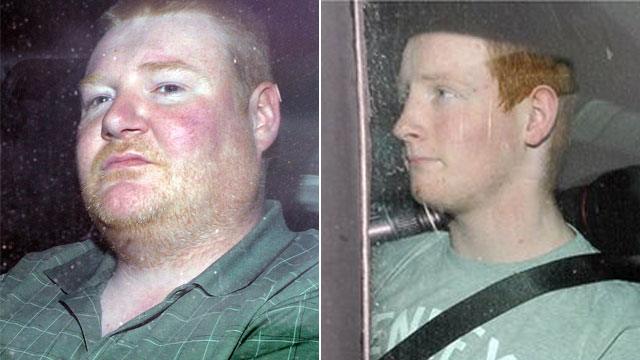Boston Tapes: PSNI accused of 'fishing expedition' over former IRA man's Boston tape interviews
- Published
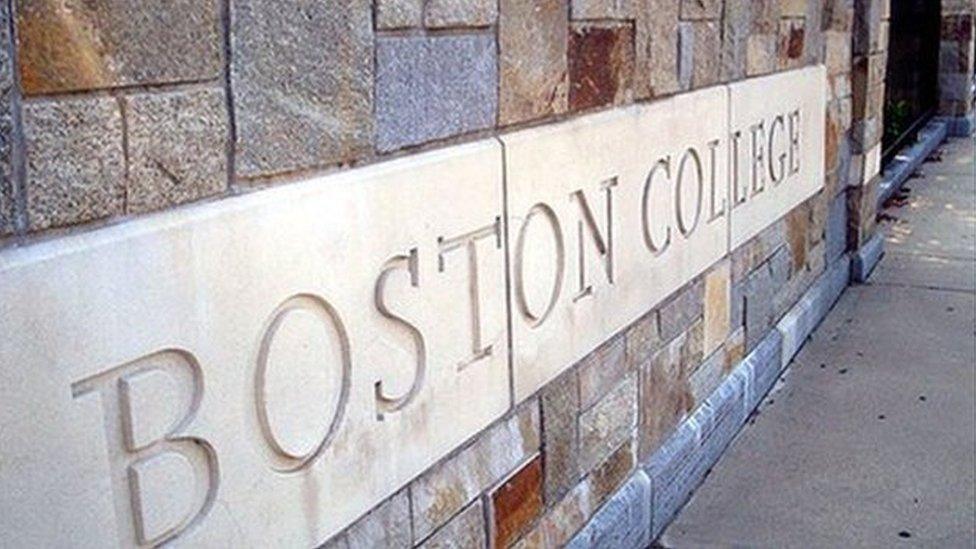
The tapes are being held at Boston College
Attempts by police to access a former IRA man's interviews for an American university project are "just a fishing expedition", the High Court has heard.
Lawyers for Anthony McIntyre said tapes stored at Boston College only contain details of offences for which he had already served a prison sentence.
They are trying to stop the PSNI and the Public Prosecution Service getting his so-called Boston tape.
The tapes were candid interviews by loyalist and republican paramilitaries.
Mr McIntyre, who is originally from Belfast but now lives in the Republic of Ireland, was one of the main researchers in the Belfast project to compile an oral history of the conflict in Northern Ireland.
The former paramilitaries chronicled their roles in the Northern Troubles on the understanding that the tapes would only be made public after their deaths.
However, in 2011, the Police Service of Northern Ireland (PSNI) began a legal bid to gain access to the interviews held by the college.
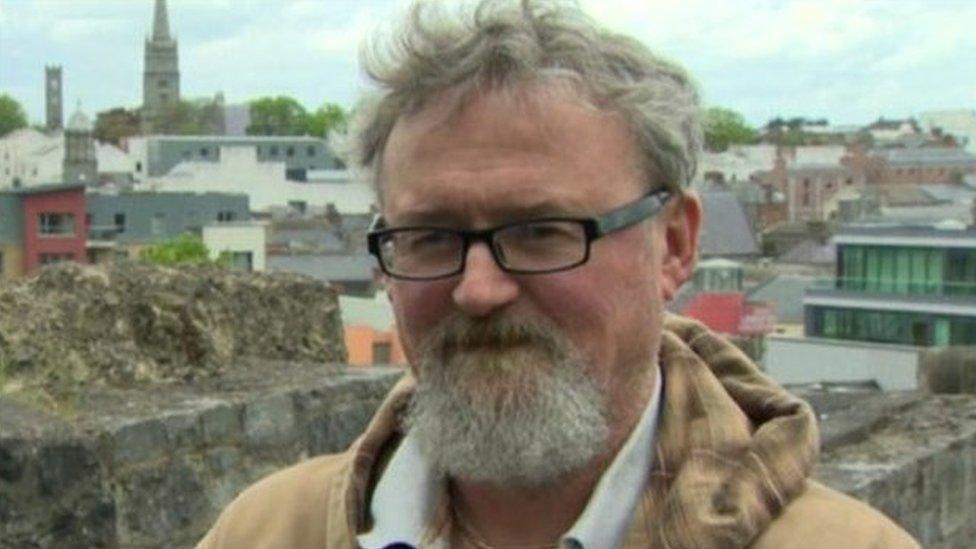
Anthony McIntyre was the lead researcher for the Boston College oral project
They secured transcripts and tapes of interviews given by former IRA woman Dolours Price and ex-loyalist prisoner Winston "Winkie" Rea.
Now the authorities want access to Mr McIntyre's recorded recollection of his own IRA activities. A subpoena seeking copies of his interviews has been served on Boston College by the Government.
The move concerns an International Letter of Request (ILOR) setting out alleged offences being investigated.
Boston College has until 26 May to file a motion to quash proceedings in the United States.
Meanwhile, Mr McIntyre's lawyers have launched legal action at the High Court in Belfast. They are seeking a judicial review of the decision by police and the prosecution service to issue such a letter.
Ronan Lavery QC said that, unlike in the Rea case, the authorities did not disclose details of the letter. He said the suspicion was that it did not reveal specific offences.
He said Mr McIntyre was in jail between 1976 and 1992, and had only been questioned about another alleged offence committed within prison.
"In June 1978 he was questioned about possession of an imitation firearm found in a pair of platform shoes," Mr Lavery said.
"There's no suggestion of any offence committed since that date."

What are the 'Boston tapes'?
Dozens of former paramilitaries were interviewed in Belfast and other cities and towns from 2001-2006 as part of an oral history project known as the Belfast Project.
Details about internal politics and activities of the IRA were revealed on tape, including accounts of a hunger strike in prison in the 1980s.
Overall, the project cost about $200,000 (£118,520), mostly provided by an Irish-American businessman.
Each interview was transcribed, sent by encrypted email to New York and then the material was sent to Boston College, where it was placed under lock and key at Burns Library.
Following a lengthy legal battle with the college, the Police Service of Northern Ireland gained access to a small number of the interviews in 2013.

As the American proceedings are taking place later in May, the judge was told that the judicial review application was no longer so urgent.
But Mr Lavery argued: "We say it's a fishing expedition and has no specific (charge). But we won't know that until we see the ILOR."
Tony McGleenan QC, for the chief constable, said the court should wait until American proceedings were exhausted.
"At which point we will know if there's a need for a hearing in this jurisdiction," he explained.
Peter Coll QC, representing the PPS, agreed.
"There's no immediate urgency in this matter," he said.
Adjourning the case, Mr Justice Maguire noted that a future hearing may be required at short notice, depending on the outcome in America.
- Published17 October 2019
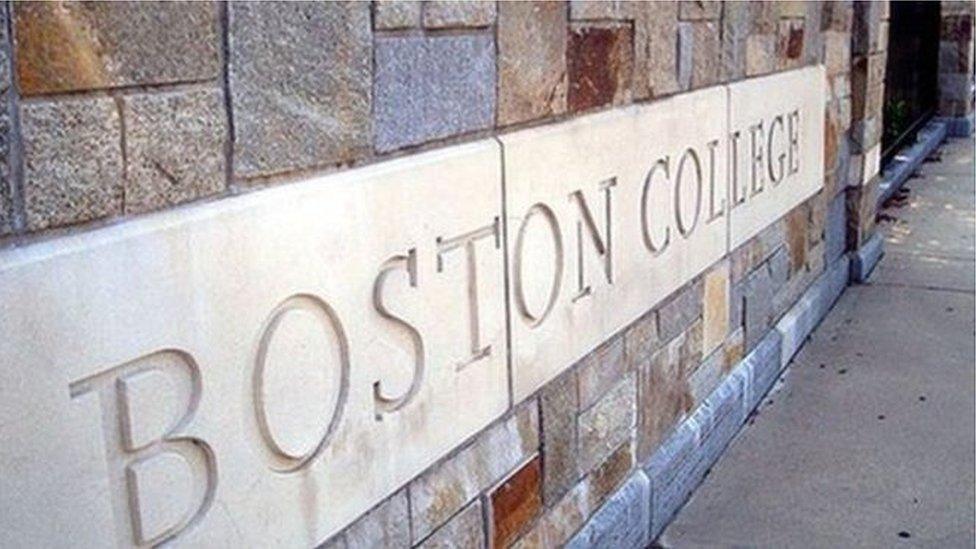
- Published5 June 2015
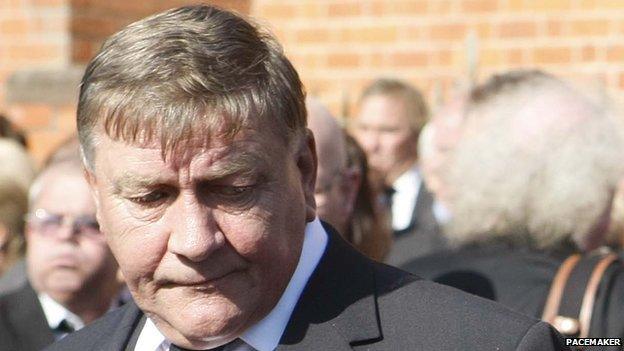
- Published15 April 2013
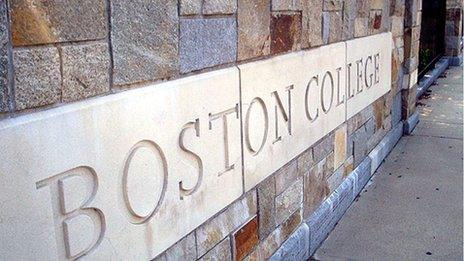
- Published19 May 2015
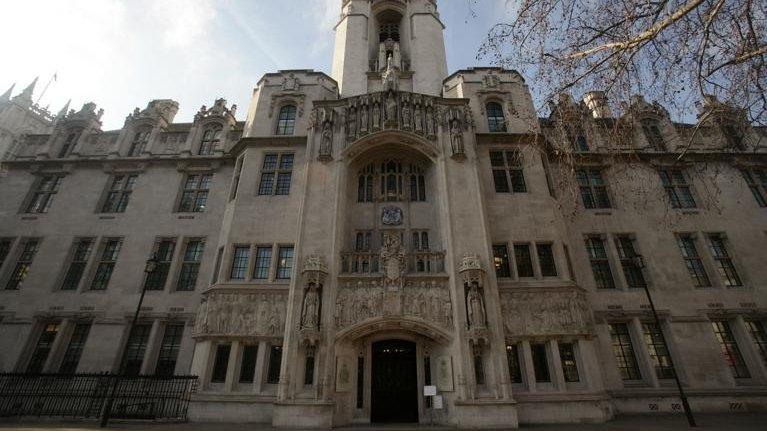
- Published9 February 2015
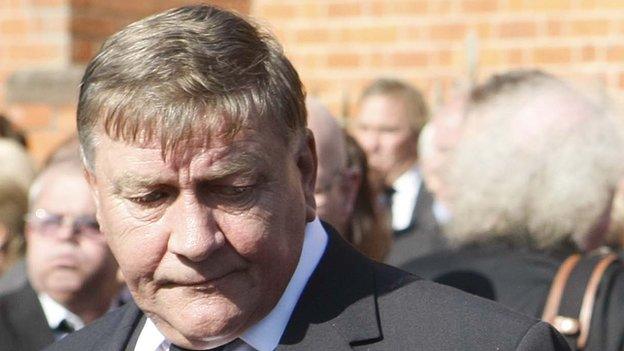
- Published24 October 2014
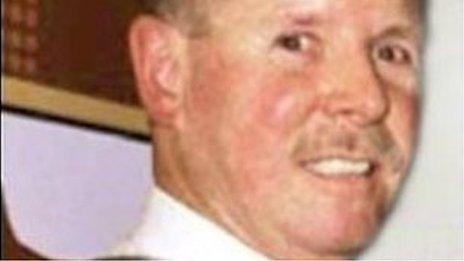
- Published14 October 2014

- Published29 May 2014
